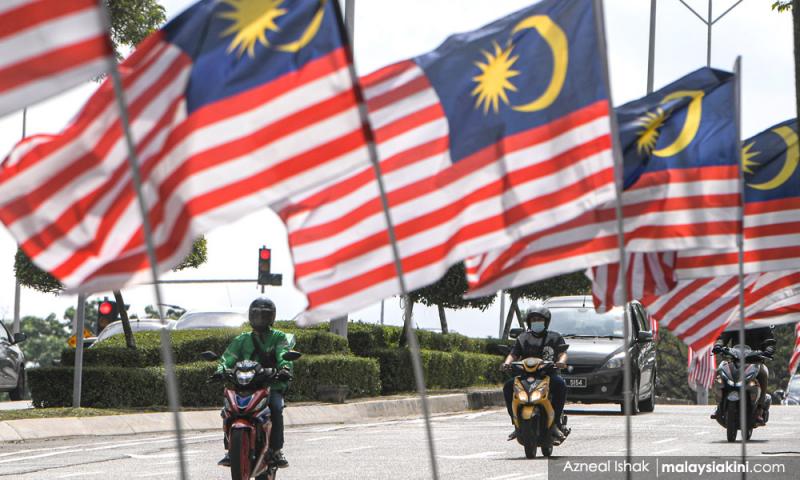MP SPEAKS | Reclaiming our place as a global rule shaper
MP SPEAKS | Last week, whilst Parliament was still debating the second reading of Budget 2023's policy stage, the Foreign Ministry held its inaugural ministry-wide two-day retreat to kickstart a process of rejuvenation and to recalibrate the role of Malaysia in the global landscape. It was also to discuss the ministry’s policy and operational options to democratise (merakyatkan) Malaysia’s foreign policy.
I am humbled by the party’s blessing as well as Foreign Minister Zambry Abdul Kadir’s trust in me to serve as one of the 12 members of the Consultative Council for Foreign Policy, and it is in this capacity that I participate in the retreat.
I feel positively dwarfed by the opportunity to serve as the sole member of Parliament in the council, alongside stalwart and prestigious Malaysians such as Dr Jemilah Mahmood, Md Hamzah Md Kassim, Lai Yew Meng, Kuik Cheng Chwee, Ku Jaafar Ku Shaari, Ahmad Azam Ab Rahman, Yusmadi Mohd Yusoff, Mohd Azmi Abdul Hamid, Ahmad Shabery Cheek, Abd Rahman Dahlan, Mazlan Othman, and Abdul Razak Ahmad.
One of the many resolutions from this retreat was that Malaysia needs to manifest domestically and project outwardly the geostrategic position of being a Global Middle Power and reclaim its place in the global landscape as a rule maker or rule shaper.
In preparation for Malaysia’s chairing of Asean in 2025, we must also take substantive and meaningful steps to lead the regional discourse on the global challenges we collectively face and to strive together towards sustainable development goals, as well as to galvanise all state and non-state actors across Asean to be a significant global economic and market force.
The strength of a country’s international standing is correlative with its domestic policy. Therefore, foreign policy must be grounded in domestic priorities and realities. The age-old adage of foreign policy being exclusively high politics must be tempered by the localisation and democratising of Malaysia’s foreign policy. The Malaysian people must be able to feel the benefits of the country’s foreign standing and international relations.
Creating a ‘people-centric’ foreign policy
In my panel intervention together with Malaysian Ambassador to Azerbaijan Yubazlan Yusof and Associate Professor of Politics and International Relations Dr Lai Yew Meng, I raised the following suggestions for the Foreign Ministry.
Initiate active parliamentary diplomacy by mapping out members of Parliament and senators’ areas of expertise, interests, and positions on salient international issues and leveraging their voices/reputations to reach out to their followers and constituents. It is also a way to instrumentalise and positively appropriate the international networks of MPs and senators for Malaysia’s benefit.
Facilitate Malaysian MPs to actively identify and seek out inbound diplomatic programmes by foreign missions in Malaysia - such as international researchers, and social and cultural volunteers from foreign countries - and to be placed prominently at the grassroots level to touch the hearts and minds of common Malaysians.
Mobilise citizen diplomacy through the Malaysian diaspora as ambassadors for public diplomacy in their host countries. In the same vein, I also suggested building over time a global network of non-Malaysian nationals who will be brand ambassadors for Malaysia, having spent a period between three to five weeks in Malaysia under a curated cultural, social, and political immersion programme from which an alumni network will be formed and maintained in perpetuity.
Engage with and organise various domestic foreign policy and international relations stakeholders, including college/university students, religious communities, think tanks, community leaders, civil society organisations, and others. From this, build a global network of Malaysia-friendly think tanks, international NGOs and CSOs.
Knowledge and education diplomacy, sports diplomacy, and also economic diplomacy should be made areas of focus - with the necessary financial allocation - for soft power building for strategic missions across the globe.
The retreat’s final resolutions included a vast majority of the above suggestions. The minister also expressed a strong interest in the “interests and expertise mapping” of our MPs and senators’ foreign policy inclinations, which he has requested my involvement in operationalising.
It must be stressed that almost all speakers - including former ministers and stalwart Wisma Putra historical figures and associates - repeatedly acknowledged the refreshing culture of openness that has been long absent in Wisma Putra’s recent history. For that, I must congratulate my “kekanda” and fellow Perakian, the foreign minister.
Breaths of fresh air and people-centricity are seldom, almost never associated with foreign policy and the Foreign Ministry in Malaysia. However, there is an overwhelming feeling of just that in the two days of interacting with the ministry’s middle management upwards.
I pledge my utmost commitment to serving Malaysia and the ministry. It would be my honour to participate in the Foreign Ministry’s work domestically and worldwide for as long as my experience and service are required. Misplaced as it may sound, it may be the first time that Malaysians will have a reason to find foreign affairs “exciting”.
HOWARD LEE is Ipoh Timor MP. He was formerly a member of the Perak state executive council and two-term Pasir Pinji state assemblyperson.
The views expressed here are those of the author/contributor and do not necessarily represent the views of Malaysiakini.
RM12.50 / month
- Unlimited access to award-winning journalism
- Comment and share your opinions on all our articles
- Gift interesting stories to your friends
- Tax deductable
